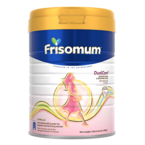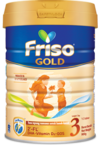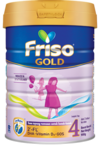Why Mums Need Maternal Milk and Its Influence on Foetal Growth
Why Mums Need Maternal Milk? Maternal milk is typically chock-full of .... read more

Pregnancy is a journey that is undoubtedly tough on a woman’s body. She goes through so many changes that are physically tasking, which is why women turn to supplement their diets with maternal milk/susu while pregnant to obtain additional nutrients needed.
But with so many options of maternal milk/susu in the supermarkets, how do you know which one to choose? Many pregnant milk brands are imported but did you realise it is important to know and understand where your maternal milk/susu is imported from? What we want to highlight here are maternal milk/susu origins.
How often do you check where the maternal milk/susu is made? Often, when checking labels, we look at the ingredients list, the nutrients contained in the milk/susu and also the expiry date. But we miss one of the most important elements on the label – where it is manufactured.
You might be wondering, why is it so important to know where it is made?
More often than not, we all think imported formulated milk/susu powder comes from European countries or Australia or New Zealand. But this is a common misconception.
In fact, most maternal milk/susu brands are manufactured in Thailand, Singapore or other Southeast Asian countries.
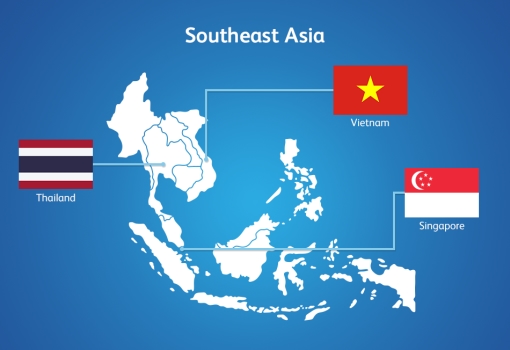
Is maternal milk/susu manufactured in Southeast Asia the same as if it was fully imported? Which is better?
The fact is, no. It is not the same when a milk/susu product is manufactured in Southeast Asia versus being fully imported from Europe or other countries with large dairy farming.
Here is the main difference: single versus double manufacturing process.
Most milk/susu products made in Southeast Asia go through a double manufacturing process while products that come directly from a European country, like Holland (or other countries with large dairy farming) only go through a single manufacturing process.
What does this mean?
A double manufacturing process means the milk/susu is typically sourced from a western country, the cows are reared overseas, the milk/susu is extracted from the farm and then transported to a factory to be made into powder. The powder is then shipped over to Southeast Asia for brands to include their own ingredients.
However, when this happens, the milk/susu powder goes through multiple heat treatments and it is possible that natural nutrients are lost during this process.
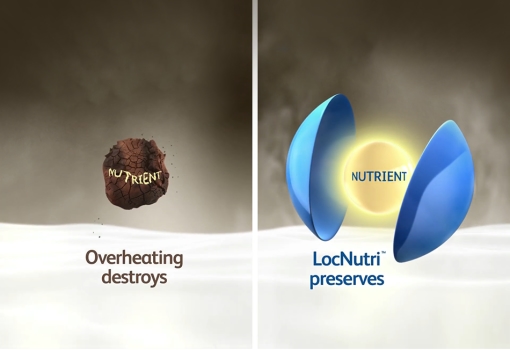
A single manufacturing process means that milk/susu is extracted from cows in the original country, converted into powder using a mild heat treatment and then directly packaged and exported to be sold here in Malaysia.
This means that the maternal milk or pregnant milk brand that owns the farm is able to control the environment in which the cows are reared to ensure a thriving atmosphere. Then when the milk/susu is transported, it is done so at the right temperature.
Before the milk/susu is converted into powder, it is carefully tested for the right colour and scent to ensure that it is of the highest quality.
Not only that, when a single manufacturing process is carried out, it is easier to preserve the natural nutrients of the milk/susu to give expecting mummies exactly what they need for their pregnancy journey.
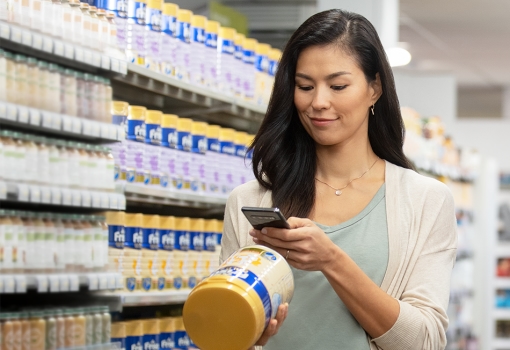
Ultimately, when shopping around for a maternal milk/susu brand, it is important to include maternal milk/susu origins as a factor for your decision-making process straight from the very farms and cows owned.
It is not just about additional fortified nutrients, but the source and journey of how these nutrients are packed that will ensure natural goodness in every glass. After all, mummies only want the best for the child growing inside them.
To address the specific needs of mums-to-be, maternal milk is often recommended as it helps balance both your and your child’s nutritional needs safely. We have formulated Frisomum® Gold with both mum and child in mind, and its unique Dual Care+ formula supports you on your pregnancy journey. Some of the vital nutrients that Frisomum® Gold provides you with include:
Vitamin D - Vitamin D is necessary for the absorption and utilisation of calcium and phosphorus1.
Calcium - Helps in the normal growth and development of bones and teeth2.
Vitamin B12 - Needed for red blood cell production and the healthy functioning of the nervous system3.
Folic Acid - Folic acid is essential for growth and division of cells. Folate plays a role in the formation of red blood cells. Folate helps to maintain the growth and development of the foetus4.
Iodine - Essential for the formation of thyroid hormones, which supports brain development5.
Low glycemic index - The glycaemic index (GI) is a rating system for foods containing carbohydrates. It shows how quickly food affects your blood sugar (glucose) level when eaten on its own. The low glycemic index (GI) could help the mother avoid being overweight during pregnancy.
With that being said, learn more about what maternal milk is and how to choose formulated milk powder with the nutritional value you and your child need. The next time you consider a brand, consider factors other than price and powdered milk nutrition facts and information. It is good to opt for the formula milk powder that also allows you to trace the product's quality control journey from farm-to-trolley, so that you can walk away from the store with peace of mind. When you consider maternal milk powder, it is also best to consider the origins of the milk, the process of manufacturing, and nutrient content as well as one which helps you control weight gain during pregnancy. Frisomum® Gold preserves the natural nutrients of the milk to give you what you need in your pregnancy journey. Now that you are aware of the importance of maternal milk/susu, check out what Frisomum® Gold has to offer now!
References
